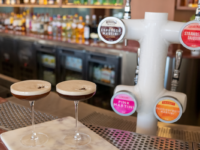Good Earth Dairy has received a $4.4 million grant from the WA State Government to construct a fresh and powdered camel milk processing facility in Perth.
The grant would help execute the company’s $20 million project to boost the production of new products for international distribution. The project is expected to be completed in 2026 and will increase camel milk production capacity to 21.9 million litres annually.
“My Government is committed to securing the State’s economic prosperity now and for generations of Western Australians,” said Premier Roger Cook.
“We’re backing local companies to manufacture here in WA, value-add, and take on the world in developing high-tech products for the future.”
Established in 2016, Good Earth Dairy is WA’s first commercial camel milk dairy producer. It operates on an 800-hectare property with a herd of 160 camels (and another 200 on order) and distributes a range of products through leading and independent stores across Western Australia.
The company has turned over $3.4 million in revenue since its launch and has grown more than 200 per cent over the past year.
Camel milk is another alternative to cow’s milk, retailing in the country at $13-20 per litre. It has low amounts of allergens, has high nutritional value, and claims to be a close substitute for human milk.
In addition, it is low in saturated fat and does not hard coagulate, making it suitable for infants and adults to digest.
Marcel Steingiesser, founder and CEO of Good Earth Dairy, said the company is ready to take “everything to the next level” and grow internationally.
“Australia – particularly Western Australia – is uniquely positioned to be a global leader in camel milk production,” said Steingiesser.
“If we were to rely on breeding, we would be very limited, but we have access to a huge supply of camels in outback WA.”
In addition to the $4-million grant from the government, the company is also looking to IPO on the ASX in the second quarter of next year, with plans to diversify its product portfolio to release other camel milk products, including beverages, ice cream, cheese, and enter the infant formula market.
“We’ve spent seven years and $9 million developing IP for camel domestication, husbandry, farm design and processing with a focus on maximising yield and becoming the lowest-cost producer of camel milk globally,” added Steingiesser.
“As we bring the cost of camel milk lower and lower, we stand a good chance of being able to compete with the $840 billion dairy market.”













